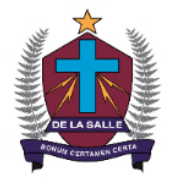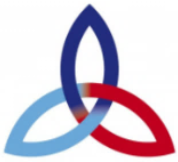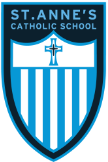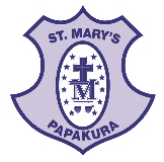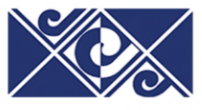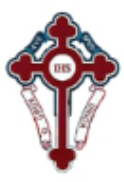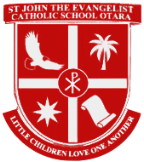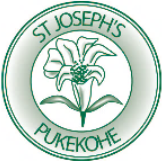
SOUTH AUCKLAND CATHOLIC SCHOOLS COL REPORT 2018
At the end of 2016 the South Auckland Catholic Schools Community of Learning came into effect, with the appointment of the CoL Lead Principal, Bruce Young, 4 Across School Lead teachers, Kerryn Baker, Matthew Norman, Lynette Hay and Judith Fromont and 21 In school Lead teachers; employed with the purpose to work collaboratively across schools, with the express aim of raising achievement of boys and Maori and Pasifika students in Writing and Maths and raising numbers of students achieving NCEA level 2.
7 schools made up the initial group, De La Salle College, Mangere; Holy Cross Catholic School, Papatoetoe; St Mary MacKillop Catholic School, Mangere; St John's the Evangelist Catholic School Otara; St Mary's Catholic School, Papakura; St Joseph's Catholic School Pukekohe; and St Anne's Catholic School Manurewa. In 2017 Holy Trinity Catholic School was opened in Takanini, consequently joining the CoL during the year and bringing the number of schools in the CoL to 8.
Achievement Aims and work in 2017
From data gathered in 2015 and 2016 and inquiry into meeting the needs of the CoL schools, the focus for 2017 was in raising achievement for boys, and Maori and Pasifika students in Writing. National priority areas identified by the Ministry of Education were incorporated into the plan of action for the CoL and PLD was sourced and provided. Noted was a need to build capability in teacher inquiry, see as the most effective means to improve student outcomes.
Through this, the teachers identified target students, scanned deeply for information around needs, developed focus for further professional learning, changed teacher practice and created programmes of learning, while continuing to closely monitor impact and make changes that would lead to the most effective and long lasting improved learner outcomes. In addition, PLD was offered sharing theory and practice in the area of cultural responsiveness; growing teacher capability to first understand its relevance and purpose and then develop strategies within their own practice or across their schools that would engage and support learners from diverse cultural backgrounds.
PLD was offered to Principals, APs and DPs, Lead teachers Across Schools and Within School Lead teachers. As leaders of learning this cohort were given an opportunity to develop and/or strengthen capability in coaching and mentoring; building skills to work with other teachers within their schools or across the CoL community in order to support and guide them in their teacher practice. Always with a focus on raising student achievement in Writing.
Alongside PLD opportunities, the Across School Lead Teachers (ALSTs) worked initially with the In-School Leads to support them with inquiring into their own literacy practice and working towards meeting target students writing goals. From this, many In School Lead teachers went on to support other teachers within their school with inquiry processes. ASLTs continued to support In School leads as well as work with different teachers or leaders within schools.
There were some challenges as to be expected with the startup of working relationships around timetables, teacher/school expectations and school systems, with a need to be flexible and adaptable in approach.
However, positives did outweigh challenges:
- Positive relationships and collaboration developed across schools.
- Teachers showed growth in understanding and implementation of teacher as inquiry practice with resulting improvement in student achievement.
- Working and collaborating across levels gave a broader understanding of expectations, and directed teachers programmes of learning to become more effective in delivery and assessment.
- PLD workshops provided an opportunity for professional networking and sharing of effective practice
Data results for 2017
At the close of the school year for 2017 data was gathered with schools looking at National Standards achievement. This information was passed onto the CoL administration for collation and analysis.
Boys
2016: There were 1225 Boys in Year 1 to 8. 714 (58%) were At or above the National Standard in Writing.
2017: There were 1288 Boys in Year 1 to 8. 856 (66%) were At or Above the National Standard in Writing. (+8%)
Considering the CoL's achievement goal for 80% at the end of 2018, the target was set to increase this to 224 (80%), a shift of 10 by the EOY 2018.
All Pasifika Students
2016: There were 1503 Pasifika Year 1 to 8 students. 974 (65%) were At or Above the National Standard in Writing.
2017: There were 1546 Pasifika students in Year 1 to 8. 1049 (68%) were At or Above the National Standard in Writing. (+3%)
Considering the CoL's achievement goal for 80% at the end of 2018, the target was set to increase this to 1236 (80%), a shift of 187 pupils by EOY 2018.
NCEA
The CoL's achievement goal is to increase those achieving Level 1 to 90% by EOY 2018. A shift of 17 students.
Level 2
2016: There were 146 (2016) students who sat NCEA Level 2. 119 (82%) achieved NCEA Level 2.
2017: There were 154 (2017) students who sat NCEA Level 2. 135 (88%) achieved NCEA Level 2. (+6%)
There was a 2% increase in Merit endorsement form 20 to 25 students (2016 - 2017) and 3 % increase in Excellence endorsements from 8 to 14 students (2016 - 2017)
Focus for 2018
Alongside data results, the CoL gathered information through surveys, reflections, observations and summaries of work, and interviews with students and teachers and identified the following focus areas for 2018.
2. To grow teacher understanding and capability in developing practice that strengthens Learner Agency
That all teachers have an understanding of learner Agency and use it to improve learning outcomes of priority learners (Boys, Maori and Pasifika)
That school leaders will actively promote and support the learner Agentic approach across all levels of learning.
3. To grow teacher's and leader's collaborative and culturally responsive practices
That all teachers have developed a strong understanding of Teacher collaboration and implement this to develop an effective practice for better outcomes in teaching and learning.
That all teachers deepen their understanding of culturally responsive practice and have embedded this within their teaching and learning programmes.
That school leaders will ensure that a common understanding of collaboration and culturally responsive practice exists and that it is embedded within the culture and practices of the Kahui Ako.
